Hypertension (High Blood Pressure): Comprehensive Guide
The disease known as hypertension, or high blood pressure, is characterized by a persistently high blood pressure against the arterial walls. This may eventually lead to health issues such as kidney failure, heart disease, and stroke. Systolic pressure, or the pressure during a heartbeat, is multiplied by diastolic pressure, or the pressure during a heartrest, to determine blood pressure, which is expressed in millimeters of mercury (mmHg).
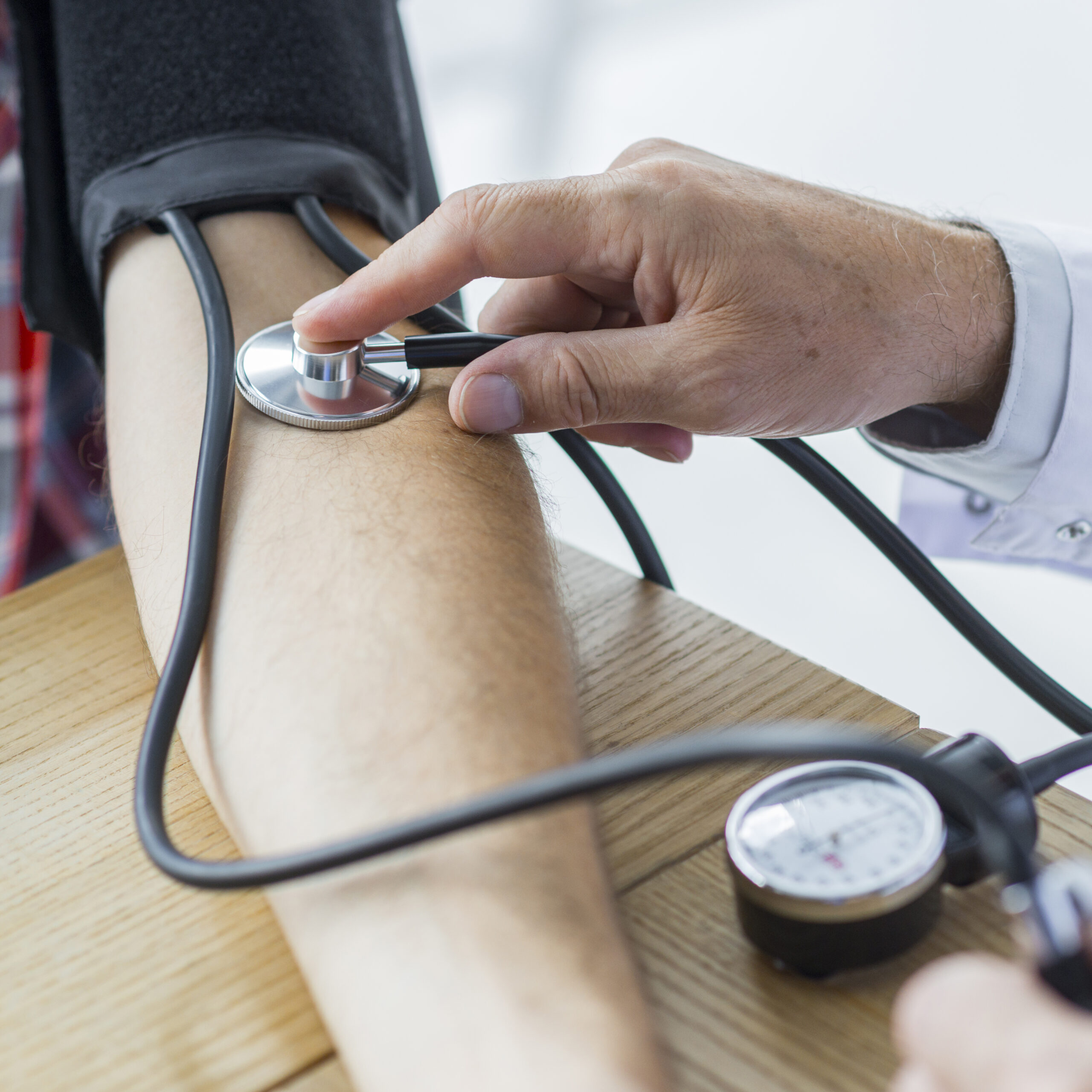
Types of Hypertension
Primary (Essential) Hypertension:
- o No discernible reason.
o Develops slowly over a long period of time.
Secondary Hypertension:
- o As a result of an underlying illness.
o Emerges abruptly and raises blood pressure above that of primary hypertension.
o Adrenal gland tumors, congenital cardiac problems, kidney disorders, certain medications, and illicit narcotics are among the possible causes.
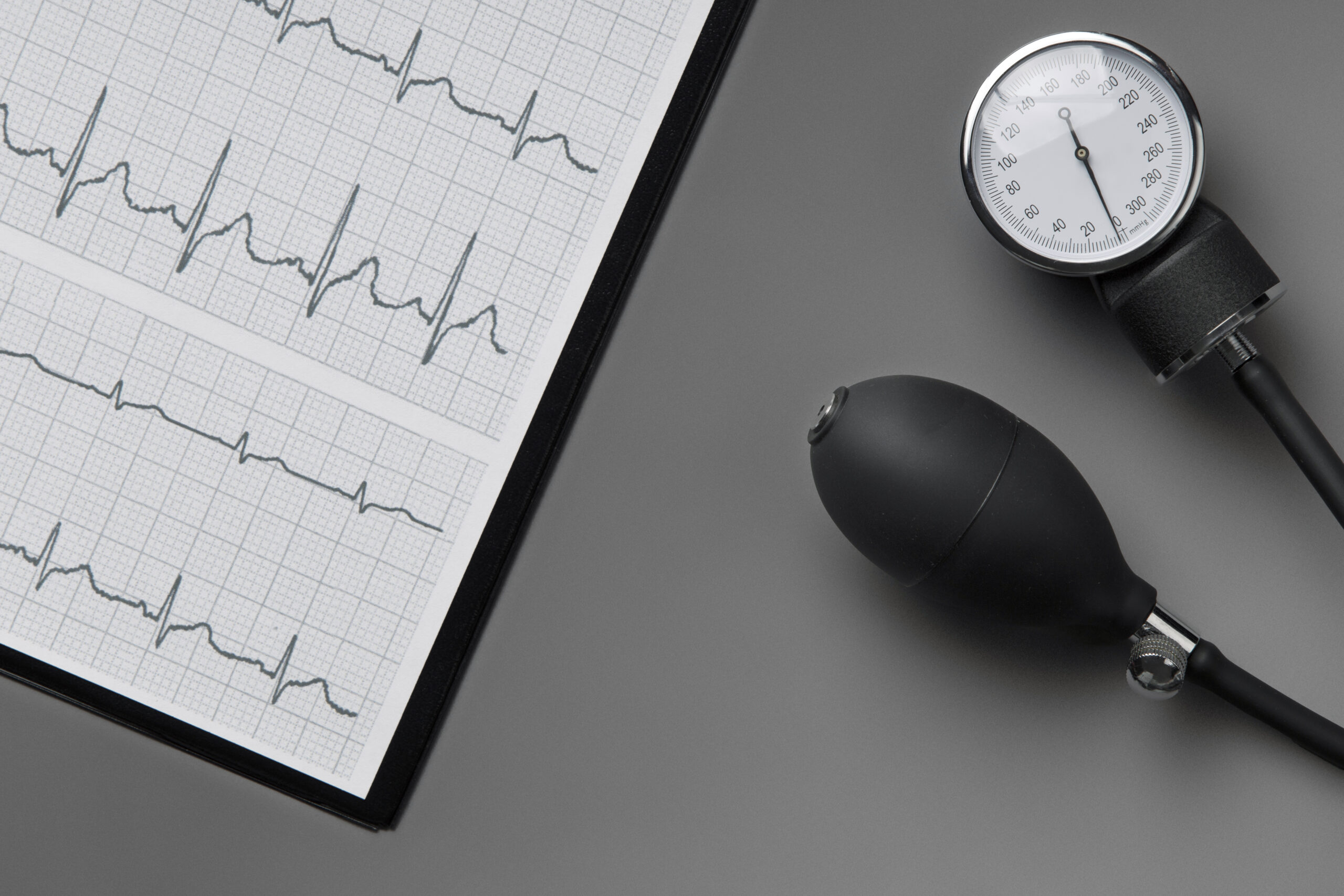
Symptoms
Because it usually doesn’t show any signs until it has done serious harm, hypertension is sometimes referred to as the “silent killer”. Still, certain individuals might encounter:
- Headaches
- Shortness of breath
- Nosebleeds
- Flushing
- Dizziness
- Chest pain
- Visual changes
- Blood in the urine
Usually, these signs indicate that blood pressure has risen dangerously high.
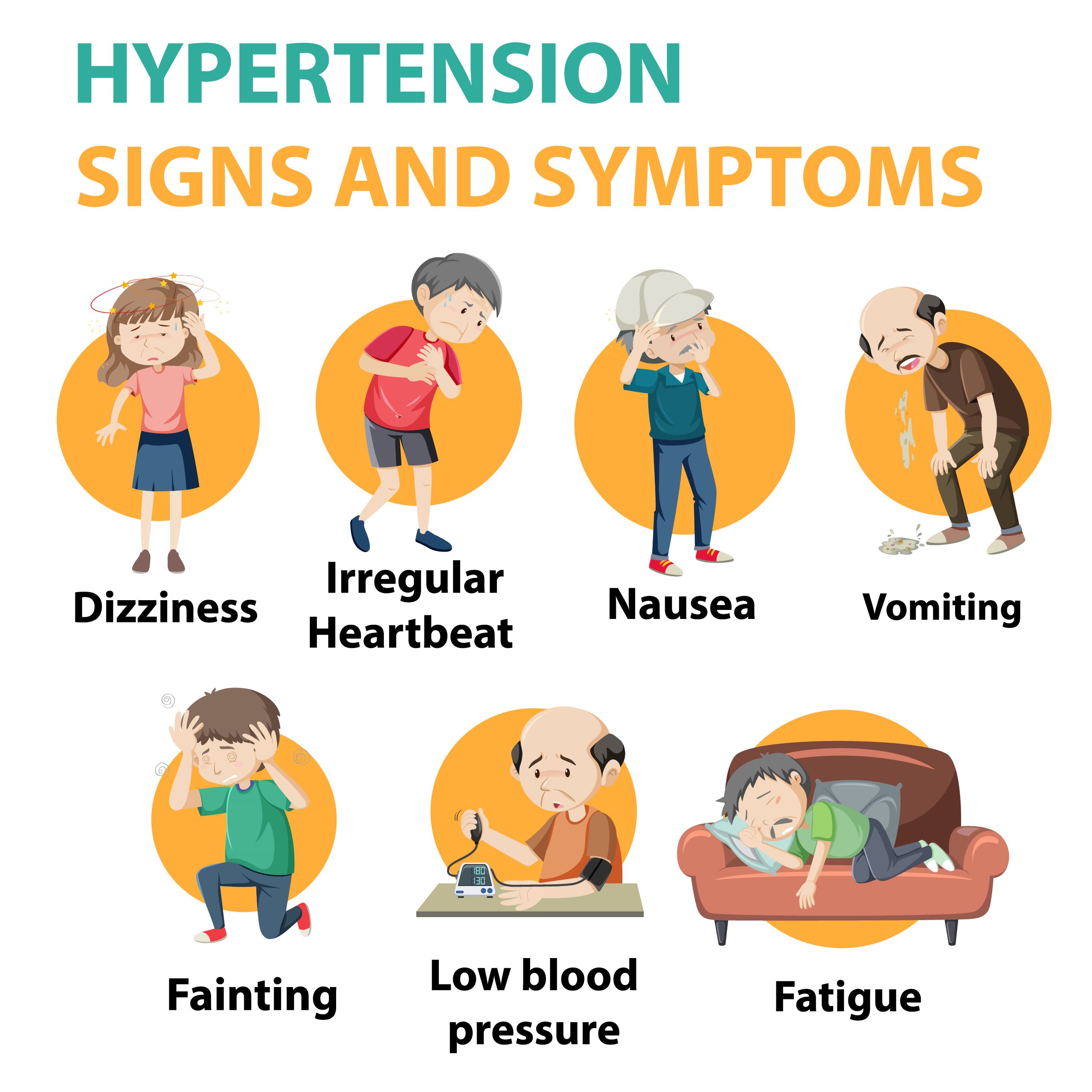
Causes
Primary Hypertension:
- Genetic factors
- Environmental influences
- Lifestyle choices such as poor diet and lack of exercise

Secondary Hypertension:
- Kidney disease
- Adrenal gland tumors
- Congenital heart defects
- Medications (e.g., birth control pills, decongestants, over-the-counter pain relievers)
- Illegal drugs (e.g., cocaine, amphetamines)
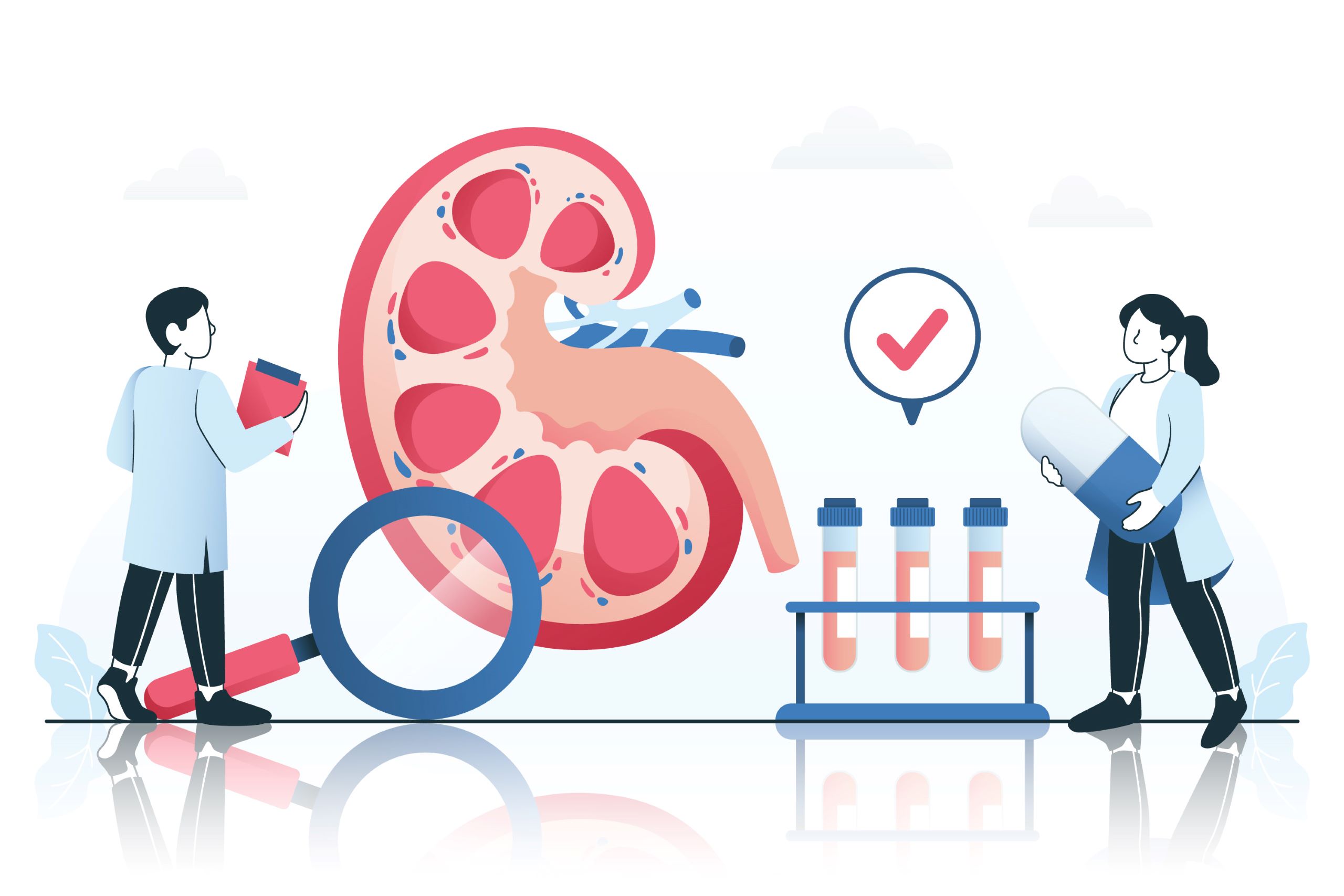
Risk Factors
- Age: Risk increases with age.
- Race: More common in African Americans.
- Family History: Tends to run in families.
Obesity: More blood is needed to deliver nutrients and oxygen to bodies with higher weights.
Physical Inactivity: Living a sedentary lifestyle increases the risk of weight gain and hypertension.
Tobacco Use: Tobacco products contain chemicals that can harm arterial wall lining.
High Sodium Diet: The body may retain fluid if it has too much salt in it.
Low Potassium Diet: Potassium aids in maintaining sodium homeostasis in cells.
- Excessive Alcohol: Can damage the heart over time.
Stress: may cause brief spikes in blood pressure.
- Chronic Conditions: Such as diabetes, kidney disease, and sleep apnea.
Diagnosis
Blood Pressure Monitoring: routine measurements using a blood pressure cuff.
- Ambulatory Blood Pressure Monitoring: Continuous monitoring over 24 hours.
Laboratory Tests: Blood tests to look for underlying medical issues (e.g., blood sugar levels, kidney function).
- Electrocardiogram (ECG): To check for signs of heart disease.
- Echocardiogram: To look for abnormalities in the heart.
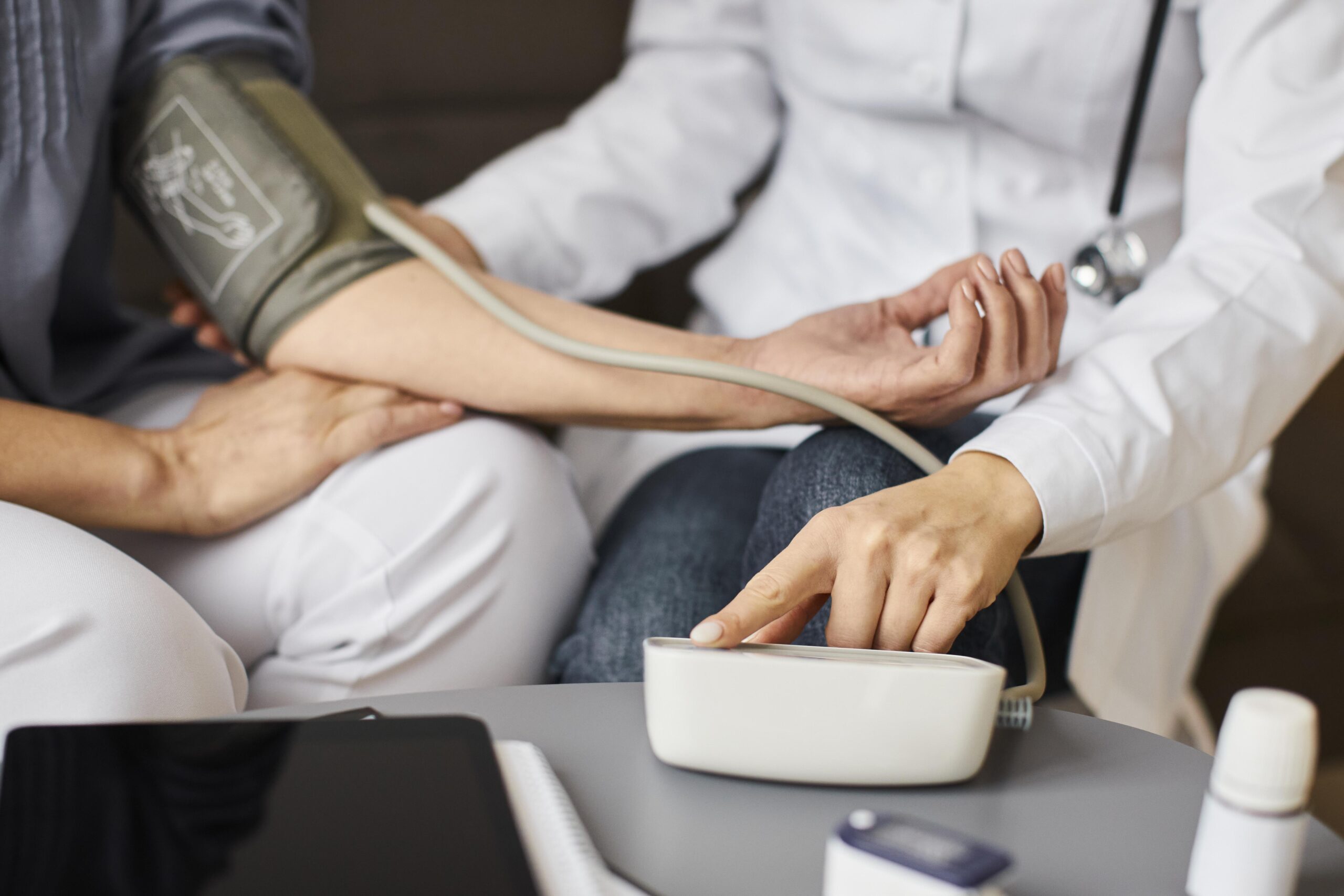
Treatment
Medications:
- Diuretics (Water Pills):
- Thiazide diuretics: Hydrochlorothiazide, chlorthalidone.
- Potassium-sparing diuretics: Spironolactone, triamterene.
- Loop diuretics: Furosemide, bumetanide.
- Angiotensin-Converting Enzyme (ACE) Inhibitors:
- Lisinopril, enalapril, ramipril.
- Angiotensin II Receptor Blockers (ARBs):
- Losartan, valsartan, irbesartan.
- Calcium Channel Blockers:
- Amlodipine, diltiazem, verapamil.
- Beta Blockers:
- Metoprolol, atenolol, propranolol.
- Renin Inhibitors:
- Aliskiren.
- Aldosterone Antagonists:
- Eplerenone, spironolactone.
Lifestyle Changes:
Diet: Choose a heart-healthy diet that prioritizes fruits, vegetables, whole grains, low-fat dairy, and other heart-healthy foods, such as the DASH (Dietary Approaches to Stop Hypertension) diet.
Exercise: Frequent exercise, such as 150 minutes a week of aerobic exercise at a moderate level.
- Weight Management: Losing weight if overweight or obese.
Reduce Salt Intake: Keep your daily salt intake to a minimum of 2,300 mg (or 1,500 mg for most individuals).
- Limit Alcohol: Drink alcohol in moderation.
Quit Smoking: Quitting smoking enhances cardiovascular health in general.
Stress Management: methods including yoga, meditation, and relaxation techniques.
Prevention:
Healthy Diet: Give priority to whole grains, lean meats, fruits, and veggies.
- Regular Exercise: Engage in physical activity regularly.
- Maintain a Healthy Weight: Achieve and maintain a healthy weight.
- Limit Alcohol and Tobacco: Avoid smoking and limit alcohol intake.
Monitor Blood Pressure: Check your blood pressure frequently, and if necessary, seek medical advice.

Complications
Heart Attack and Stroke: Atherosclerosis, which is brought on by hypertension, raises the risk of heart attacks and strokes.
Aneurysm: Aneurysms can develop from weakening and bulging blood arteries brought on by high blood pressure.
Heart Failure: Failure of the heart can result from the heart having to work harder to pump blood.
Kidney Damage: Kidney blood arteries might sustain injury from high blood pressure.
Vision Loss: can result in the bleeding or burst blood vessels in the eyes.
Metabolic Syndrome: raises the danger of obesity, diabetes, and insulin resistance.
Cognitive Decline: An higher risk of dementia and cognitive impairment is associated with hypertension.
Pharmacist Interventions
Medication Management: Make sure patients are aware of the dosages, possible adverse effects, and interactions associated with their prescription regimen.
Lifestyle Counseling: Give advice on exercise, nutrition, and other lifestyle changes.
Blood Pressure Monitoring: Assist patients with taking and interpreting their blood pressure readings at home.
Patient Education: Inform patients of the value of following treatment plans and making lifestyle adjustments.
Support and Resources: Provide information on programs for managing weight, quitting smoking, and reducing stress.
Conclusion
If proper lifestyle modifications, medication, and routine monitoring are implemented, hypertension can be effectively controlled. People can lower their risk of problems and control their blood pressure by being aware of the causes, risk factors, and available treatments. Effective control of hypertension requires following a thorough treatment plan and seeking advice from medical professionals.
